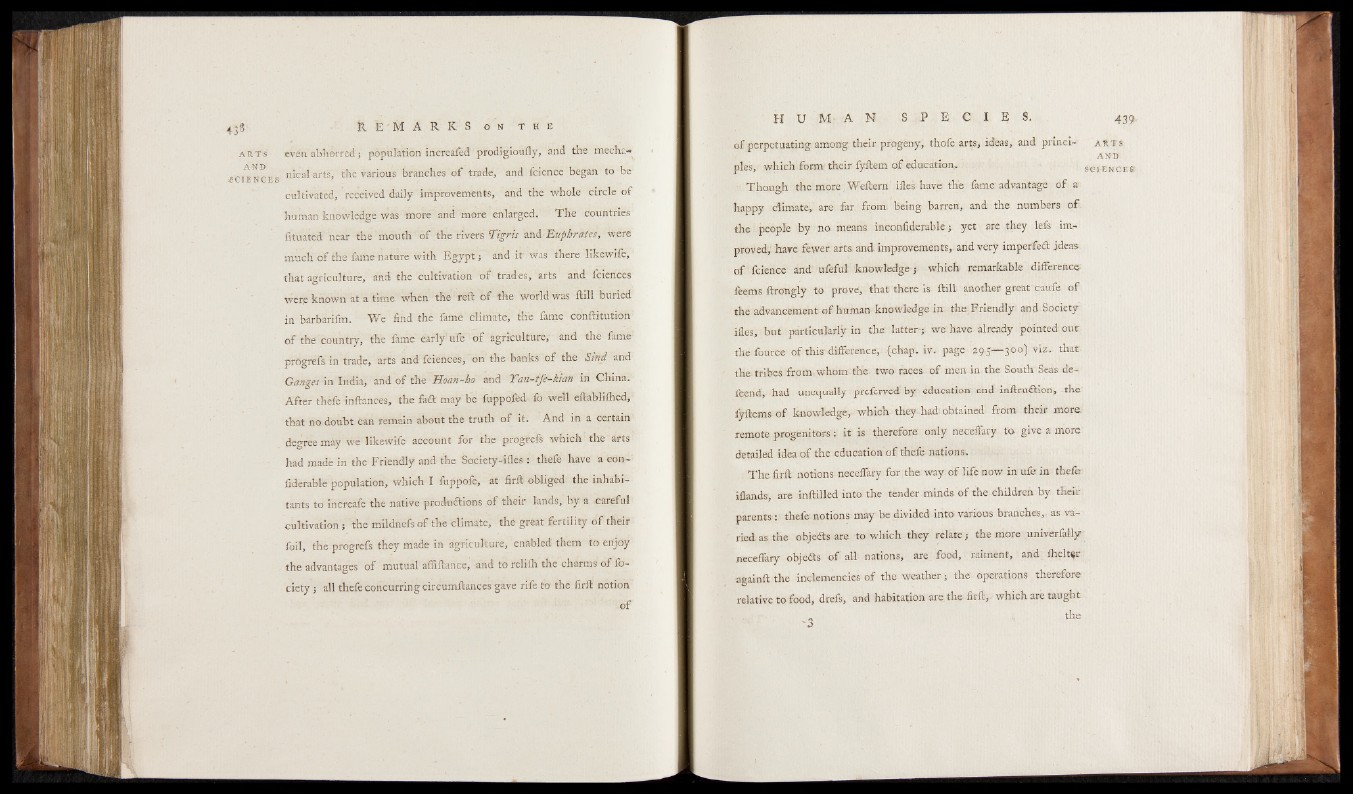
a r t 's'
AND
S C IE N C E S
even abhorred ; population increafed prodigioufly, and the mechanical
arts, the various branches o f trade, and fcience began to be
cultivated, received daily improvements, and the whole circle of
human knowledge was more and more enlarged. Th e countries
fituated near the mouth o f the rivers Tigris and-Euphrates, were
much of the fame nature with Eg ypt ; and it' was there likewife,
that agriculture, and the cultivation o f trades, arts and fciences
were known at a time when the reft o f world was ftill buried
in barbarifm. W e find the fame climate, the fame conftitution
o f the' country, the fame early ufe o f agriculture, and the lame
prôgrefs in trade, arts and fciences, ôn the banks o f the Sind and
Ganges in India, and of the Hoan-ho and Yan-tje-kicm in China.
After thefe inftances, the fadt may be fuppqféd fo well eftablifhed,
that no doubt can remain about the truth of it. And in a certain
degree may we likewife account for the progrefs which the arts
had made in the Friendly and the Societyaillés ; thele have a con—
fiderable population, which I fuppofe, at firft obliged the inhabitants
to increafe the native productions of their lands, by a careful
cultivation ; the mildnefs o f the climate, the- great fertility o f their
foil, the progrefs they made in agriculture, enabled them to enjoy
the advantages o f mutual afiifiance, -and to relifh the charms o f fo-
ciety ; all thefe concurring circumftances gave rife to the firft notion
o f
of perpetuating among their progeny, thofe arts, ideas, and principles,
which form their fyftena o f education.
Though the more,Weliern ifles have the fame advantage o f a
happy climate, are far from being barren, and the numbers o f
the people by no- means inconfiderable; yet are they lefs improved,'
have fewer arts and improvements, and very imperfedt Ideas
o f fcience and ufeful knowledge ,-, which remarkable difference
feems ftrougly to prove, that there is ftill- another great caufe of
the advancement o f human knowledge in the Friendly and Society
ifles, but particularly in the latter-; we have already pointed out
thefource o f this'difference, (chap. iv. page 29-5— 300) viz. that
the tribes from, whom the two races , of men in the South Seas de-
fcend, had' unequally preferved by education and inftrudtion, the
lyftems of knowledge, which they had. obtained from their more,
remote progenitors :■ it is therefore only neceflary to. give a more
detailed idea o f the education o f thefe nations.
T h e firft notions neceflary for the way of life now in ufe in thefe
illands, are inftilled into the tender minds of the children by their
parents: thefe notions may be divided into various branches, as varied
as the objedts are to which they relate; the more univerfally
neceflary objedts o f all nations, are food, raiment, and fhelt^r
againft the inclemencies o f the weather; the operations therefore
relative to food, drefs, and habitation are the fit ft, ■ which are taught
the
A R T S
AND
SCIENCES'